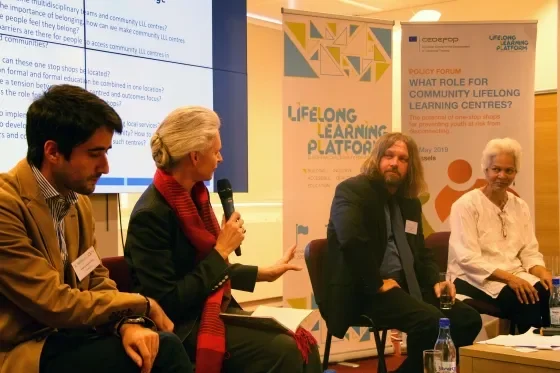

New Books on Concentric Space: Dr Paul Downes
Two new books by Dr. Paul Downes, Associate Professor of Education (Psychology), School of Human Development, Institute of Education have been published by Routledge:
Reconstructing Agency in Developmental and Educational Psychology: Inclusive Systems as Concentric Space
https://www.routledge.com/
Concentric Space as a Life Principle Beyond Schopenhauer, Nietzsche and Ricoeur: Inclusion of the Other
https://www.routledge.com/
These psychology and philosophy books offer interdisciplinary empirical and ontological arguments for the primacy of space as a primordial protolanguage, prior to language and cognition, yet seeped into and shaping both. It builds on a spatial turn recognised across the social sciences and education, to propose a specific concentric spatial turn relevant for a panorama of life systems, including intrapsychic, interpersonal, social, macrosystemic, linguistic and educational systems.
Treating space as both a hermeneutic approach and as a phenomenon impacting on systems, Reconstructing Agency in Developmental and Educational Psychology recasts the foundations of developmental and educational psychology and fills an important gap in the field by arguing for a specific concentric spatial turn so that human growth, experience and development focus on not only time but also space. This regards space not simply as place.This book challenges the domination of time over space in developmental psychology that has become a truism, built into the very nomenclature of development presupposing growth in time. Inscribing the centrality of space for developmental and educational psychology is not to pit space against time. It requires uncovering how foundational concepts of developmental and educational psychology are thoroughly imbued with spatial assumptions. It goes beyond the foundational ideas of Bronfenbrenner’s ecological systems theory for a post-Bronfenbrennerian spatial ecological systems approach, as well as offering a reinterpretation of Vygotsky, Skinner, Freud, Massey, Bruner, Gestalt and postmodern psychology in dynamic spatial systemic terms for understanding of agency and inclusion..
Concentric Space as a Life Principle beyond Schopenhauer, Nietzsche and Ricoeur offers a radical reconceptualisation of space as an animating principle for life through common, although previously hidden, features across the thought of Schopenhauer, Nietzsche and Ricoeur. It offers a fresh spatial interpretation of key themes in these seminal thinkers’ works, such as compassion, will to life, Dionysian rapture, will to power, selfovercoming, re-valuation of values, eternal recurrence, living metaphor and intersubjectivity. In doing so, it challenges the reduction of space to mere metaphor, while examining a question of inclusion of the Other as being not only a structural one but also a spatial one. This spatial questioning is not reducible to traditional issues such as space as an object or medium of perception, to space as an a priori category of understanding, to spatial metaphors and imagery in philosophical language or to a space for play of meaning within language. This spatial rereading of these major figures in philosophy directly challenges many previous understandings, to offer a distinctive spatial-phenomenological framework for examining a life principle.
